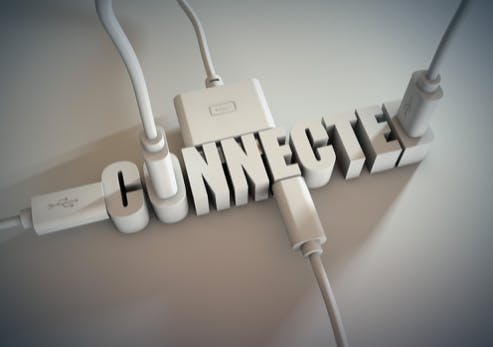I don’t know about you but by the end of Day 1 in my new home, I expect installers to have hung my big-screen television on the living room wall and connected all the wires in preparation of me watching “Evening” that night. What can I tell you, I’m a creature of habit.
As I settle into my favorite chair, Jim, Michael, Kim and Saint won’t just magically appear on my screen without a little planning.
Soon-to-be-new-homeowners: Allocate a couple of hours to contact all of your old and new utility companies and inform them of the BIG switch on your BIG day. It’s almost never too early to get on the phone, as long as you know the move-in date and time you will be in the new home. (FYI: Possession of a new home in Washington state is 9pm unless otherwise agreed. Most people complete their move-in a day later.)
In the case of electric, gas and water, you will likely be contacting the same utility to inform them of the new address and change date. That is assuming you’re moving within the city or possibly within the county. (Remember to temporarily “thaw” your credit freeze with the three major credit bureaus before contacting a new utility company; your credit report will be checked when establishing an account.)
You will also want to call your TV and internet provider(s), as well as phone company if you have a landline. These utilities generally need more time to schedule the removal of equipment or lines in the old home and installing in the new, so make that call at least 10 days in advance so you don’t miss a single episode of HGTV’s “Dream Home.” (Oh wait, the dream home is your new abode!)
If you’re moving in to a condominium, check with the homeowners’ association to see what services (if any) are paid for from your HOA dues, what utility companies serve the building/community and move-in rules (for example, some condos have policies for using wall padding in elevators or against leaving doors propped open when moving).
Also, be sure to check on sewer, garbage, recycling and trash collection services for your new home. Some may require a call or a change-of-address update online. Ask those utilities to start on the day of your closing, even if you’re not moving in for another day to ensure seamless service.
But how would a new resident know what utilities to contact, particularly if you haven’t lived near the area?
It’s best to ask your real estate broker or do some sleuthing on the internet to determine which company is associated with the new address. Once you have collected the names of one (or possibly two) utilities that serve your area, give them a call to confirm they can provide services to your home. Don’t assume a utility company can serve your address because its website says it covers a city or even a neighborhood. You would be surprised how many companies skip over streets or even some homes for various reasons.
Seattle Public Utilities (Water, Sewer, Garbage, Recycling)
Seattle City Light (Electric)
Puget Sound Energy (Electric and Gas)
CenturyLink (Phone, Cable-TV and Internet)
Comcast / Xfinity (Phone, Cable-TV, Internet and Security)
Astound Broadband (Phone, Cable-TV, Internet and Security)
How do we know if the seller has paid his/her bills on those utilities and is free of any debts at your new address? Well, that’s where the Northwest Multiple Listing Service comes in to play with one of its trusty check lists.
Form 22K, which is typically part of the larger purchase and sale agreement, states information must be supplied by seller within a certain time (typically five days after mutual acceptance), including the company names and addresses for any utilities that the seller currently has an active account.
Unless otherwise stated in the purchase agreement, the seller is on the hook to pay all outstanding utility bills. And with the proper signatures (or, in some cases, initials), escrow, for no additional fee, will take proceeds from the seller’s sale to pay some of those final bills, including municipal-run utility operators.
Unfortunately, some sellers leave gaps on Form 22K and escrow has no obligation to contact the unverified utility to check on a seller’s outstanding bills – a possible red flag that a good buyer’s broker will pursue with his real estate counterpart to sort through. Escrow will not pay final statements from public utilities, such as Xfinity or Waste Management; it will only address utilities that could slap a lien against the homeowner for unpaid bills.
Seattle Public Utilities can be a little slow in completing its billing for water consumption since an on-site meter reading is required, often forcing sellers to put extra funds in escrow to cover the final payment. The seller typically receives a refund for overpayment of utility bills within 2-3 weeks of consummating the deal.
In some cases, buyers waive so-called “services of closing agent for payment of utilities,” a check box on the purchase agreement, making Form 22K unenforceable if unchecked. A good buyer’s agent will not advise buyers to take that step, since they don’t know exactly how much is owed – hundreds or even thousands of dollars? – on the seller’s utility bills.
NOTE: This story was revised slightly on Jan. 9, 2024 to better explain the differences between municipal- and public-run utilities and the escrow’s role to pay final statements.




